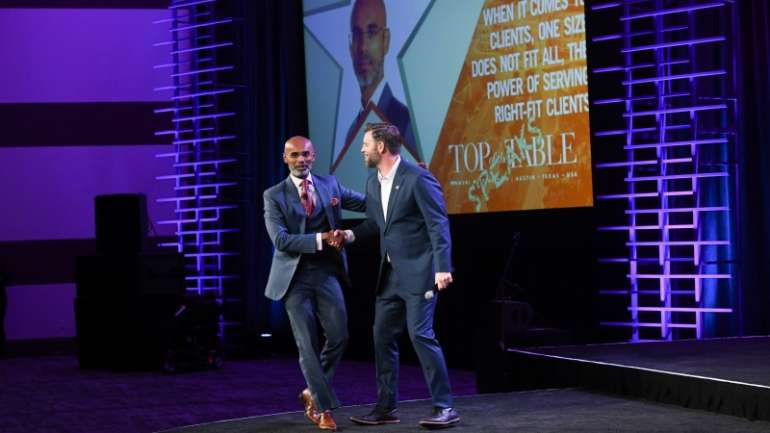A few months ago, I had the great honour of addressing a remarkable group of high achievers from the Main Platform stage at the 2019 Million Dollar Round Table, Top of the Table conference in Austin, Texas.
This annual event brings together the crème de la crème of the Life Insurance & Financial Advisory industry. Typically, it rolls out as a 3-4 day power-packed event where veterans, titans, and top-performing newcomers rub shoulders. Top Advisors from all over the world meet, learn from each other, reconnect, and leave MDRT as better professionals ready to raise the bar of the industry as a whole, and to do better by their clients.
So, when I was invited to speak on not one but two MDRT stages this year, I was thrilled. This had been an unfulfilled career-spanning dream! But I was also daunted at the prospect of it. “What could I possibly have to share with this bunch of super-achievers from my industry?” I thought.
But I’m always up for a challenge, constantly committing first and worrying about the methods and consequences later. And so, I took it on and gave it the best shot I could. I wanted to share pieces of that empowering experience with you, but more importantly, shed light on some of the biggest lessons learned from it. So here goes!
My biggest takeaways from speaking at MDRT 2019:
You don’t have to be top dog to create value
The idea that I was going to be addressing industry veterans and hugely successful financial advisors, many far ahead of me, had me feeling on edge. What if I didn’t have much to say to impress them?
But as I was formulating my talk, and working with the MDRT team, I came to understand that while we were all masters of our trade, each of us has a unique set of experiences and capabilities to share.
For instance, while we were all goal-setters, my journey from a morbid 134kg workaholic to ultra-athlete was pretty unique to me. I was the only person in the room who had run the Marathon des Sables, a 251km run across the Sahara desert not once but twice.
I also had a prioritization and time management tip or two to share: I hit several fitness personal bests and dedicated copious amounts of time to training, all while smashing my business and financial goals.
You cannot wing it
Never discount the need for preparation, no matter how experienced a speaker you are. I didn’t try to wing it, I prepared pretty well, and I still felt like I could have gotten my talk tighter.
For my short talk, I had five minutes to share my thoughts with an audience of 500 and convince them of the importance of right-fit clients. I took seven because this was an approach that had transformed business for me, and I had so much to say!
But on the professional speaking circuit, going over time is a total no-no. Better managed prep-time would have helped me tighten up my talk and close, clean, and strong.

Stay on script
My longer talk was a 45-minute presentation, and I chose to speak about goal setting, my weight loss journey, and ultra-marathons. This talk covered lifestyle, business, family, client stories, time management, setting goals, slaying goals, failing, and achieving. It was a hectic 45 minutes!
And because the journey was so close and personal to me, I found myself slipping off on a tangent to share a great little story or a piece of advice. I’m not sure that served me too well.
Flow is an essential part of keeping your audience captivated, and unless you know exactly how to come back from a detour, don’t take it. Stay as close to the script as possible.
Allow plenty of time for questions
Because I had so much content, I ended up leaving only a small window in the end for questions. I had a lot of people come up and speak to me after the talk and many who went on to follow and connect with me on social media to take the conversation forward.
But I wish I had left more time for questions right after my talk. Questions are a great sign of interest and engagement from your audience. They are validation that your audience related to your talk. It changes the perspective from ‘you’ to ‘them,’ which is great for impact as a speaker.
Reflecting and taking notes on what went well and what could have been better is an important process for speakers.
Your turn now. Any big takeaways that you have to share from your experiences on stage?

